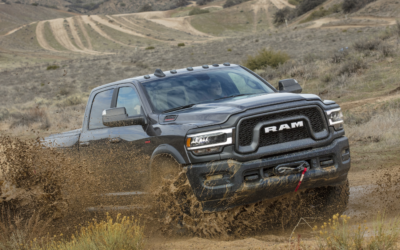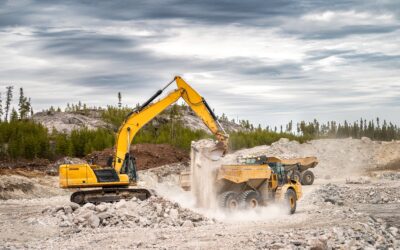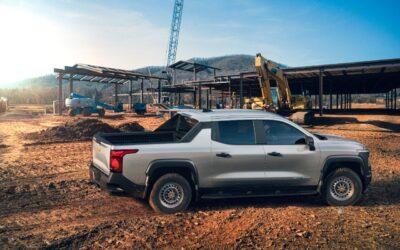Pros and Cons of a Diesel Truck
When it comes to purchasing a truck, buyers are faced with a myriad of options, ranging from diesel and gas to electric and hybrid models. Each option brings its own set of advantages and considerations, making it essential for buyers to thoroughly understand their requirements and evaluate the available choices. By delving into the unique characteristics of diesel-powered vehicles, buyers can gain valuable insights that will aid them in making informed decisions. Examining the pros and cons of diesel trucks allows buyers to weigh the benefits and drawbacks, enabling them to select a truck that best suits the specific needs of their fleet.
Understanding the advantages and drawbacks of diesel trucks will enable you to make a more informed choice based on the specific needs of your fleet. Diesel engines, like their gas-powered counterparts, are combustion engines that convert fuel into mechanical energy to power a truck. However, the fundamental difference lies in the way they ignite the fuel. While gasoline engines rely on spark plugs to ignite a fuel-air mixture, diesel engines employ a high level of compression to generate heat that ignites the fuel. Let’s explore the pros and cons of a diesel truck for your business.
Diesel vs Gas Trucks
Diesel trucks have notable advantages over gasoline trucks. They achieve up to 35% more miles per gallon, resulting in significant cost savings for high-mileage or fuel-demanding applications. Diesel engines are renowned for their durability since they are built with stronger materials and components to withstand heavy workloads and higher compression ratios. The fuel itself acts as a lubricant, reducing wear on internal engine parts and contributing to the engine’s longer lifespan. Although diesel trucks have a higher upfront cost due to manufacturing and emission control systems, they generally require less frequent maintenance. However, major service or repairs for diesel engines can be more expensive when they are needed.
Pros of a Diesel Truck
- Engine Longevity. Diesel engines are known for their durability and longevity. The robust construction, heavier components, and efficient combustion process contribute to their ability to withstand higher compression ratios and heavier workloads. As a result, diesel engines often outlast gasoline engines, making them a reliable choice for long-term truck ownership.
- Efficiency. Diesel trucks offer higher fuel efficiency compared to gasoline trucks. Diesel engines have a higher thermal efficiency, meaning they convert a larger percentage of the fuel’s energy into usable work. This increased efficiency translates into fewer fuel stops and cost savings over the vehicle’s lifetime, particularly for those who cover long distances or have high fuel demands.
- Torque/Towing Capacity. The high-compression combustion process in diesel engines generates significant low-end torque, providing increased pulling power and improved towing capacity. This characteristic makes diesel trucks well-suited for hauling heavy trailers and handling demanding workloads.
- CO2 Emissions. Compared to their gasoline counterparts, diesel trucks typically produce lower carbon dioxide (CO2) emissions. This lower carbon footprint can be advantageous for environmentally conscious individuals or businesses aiming to reduce their impact on climate change.
- Depreciation. Diesel trucks often depreciate at a slower rate compared to gasoline trucks. The higher demand for used diesel trucks and their reputation for longevity and durability can help maintain their value over time. This can result in a better resale or trade-in value, providing potential financial benefits for owners when it comes time to sell or upgrade their trucks.
- Fuel Economy. Diesel engines excel in terms of fuel economy as they can achieve up to 35% more miles per gallon compared to gasoline engines. This increased fuel efficiency translates to lower fuel costs and fewer visits to the gas station. Particularly for businesses with high mileage requirements, the fuel economy of diesel trucks can significantly contribute to cost savings and operational efficiency.
Cons of a Diesel Truck
- Fuel Economy (for highways). While diesel trucks generally have better fuel economy overall, they tend to be less efficient in city driving conditions compared to gasoline trucks. In stop-and-go traffic or during short trips where the engine doesn’t reach optimal operating temperature, diesel engines may not achieve their maximum fuel efficiency potential.
- Cost. Diesel trucks typically have a higher upfront cost compared to gasoline trucks. The manufacturing process, specialized components, and emission control systems contribute to the increased cost of diesel engines. Additionally, diesel fuel itself is often priced higher than gasoline, which can further impact the overall cost of ownership.
- Maintenance Costs. Although diesel engines generally require less frequent maintenance, when repairs are needed, the cost can be higher than that of gasoline engines. Diesel engines may have more complex systems and specialized components, which can result in increased maintenance and repair expenses.
- Availability. Diesel trucks may not be as readily available as gasoline trucks. Depending on your location and the demand for diesel trucks in your area, it may require additional effort to locate and acquire a diesel truck compared to a gasoline truck.
- Acceleration/Horsepower. Gasoline trucks often have better acceleration and horsepower compared to their diesel counterparts. Gasoline engines typically generate more immediate power and can deliver quicker acceleration, making them preferable for certain driving styles or applications that require frequent bursts of speed.
Summit Fleet Diesels
No matter what your specific needs may be when choosing a truck, Summit Fleet is equipped to meet your requirements. Whether you prefer the efficiency and towing capacity of a diesel truck or the acceleration and horsepower of a gas truck, Summit Fleet offers a diverse fleet that caters to both preferences. With a range of diesel and gas trucks available, you can trust that we have the right vehicle to get the job done efficiently and effectively, providing you with the flexibility and reliability you need for your projects and operations.
Check out our fleet options here to learn more.






